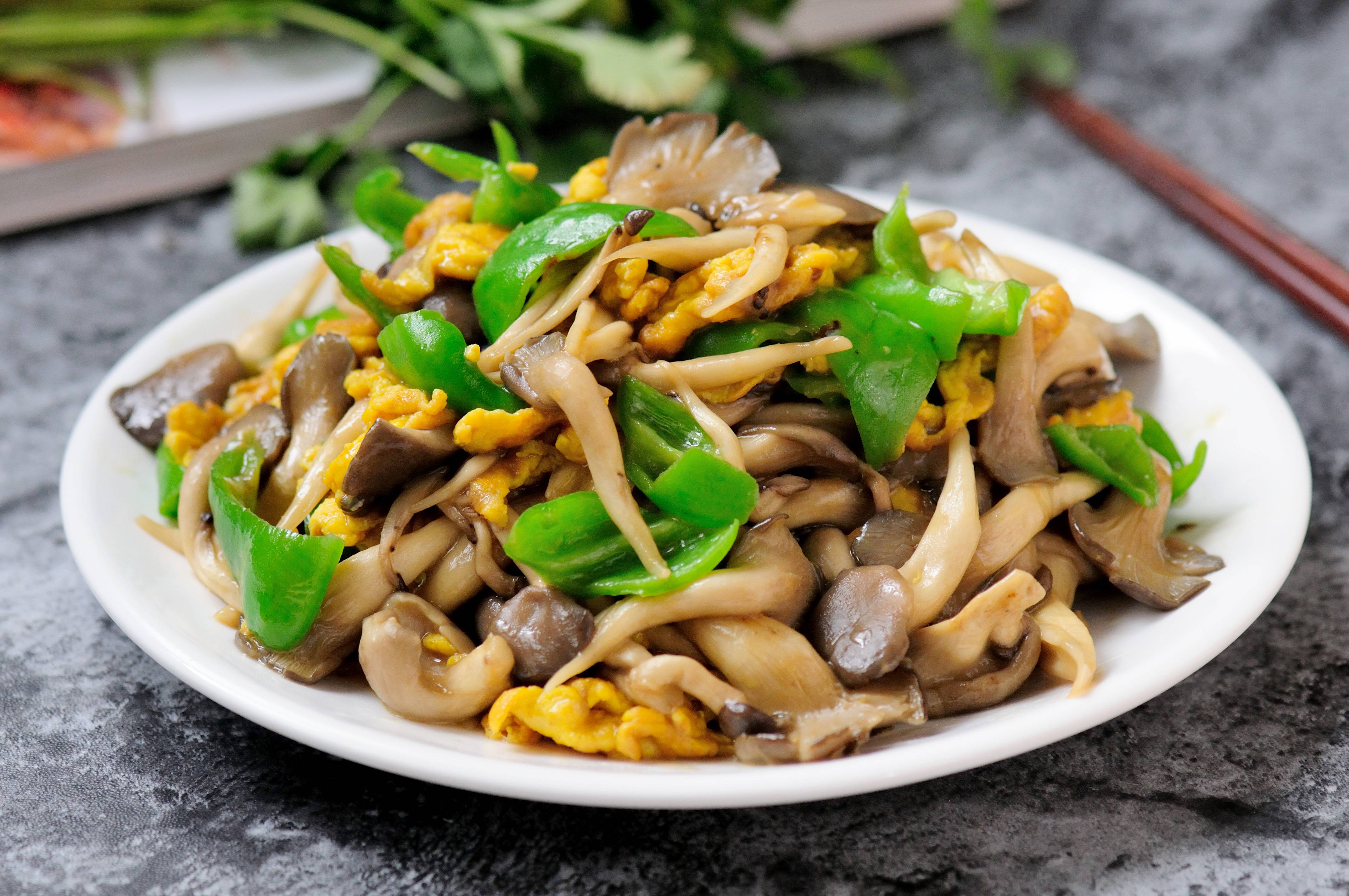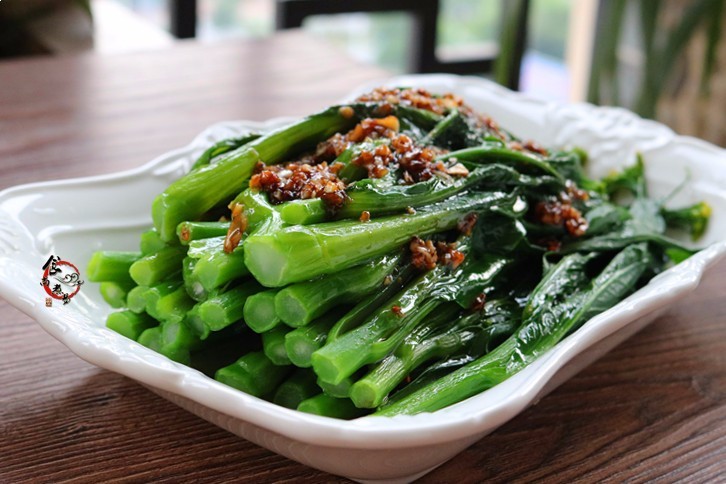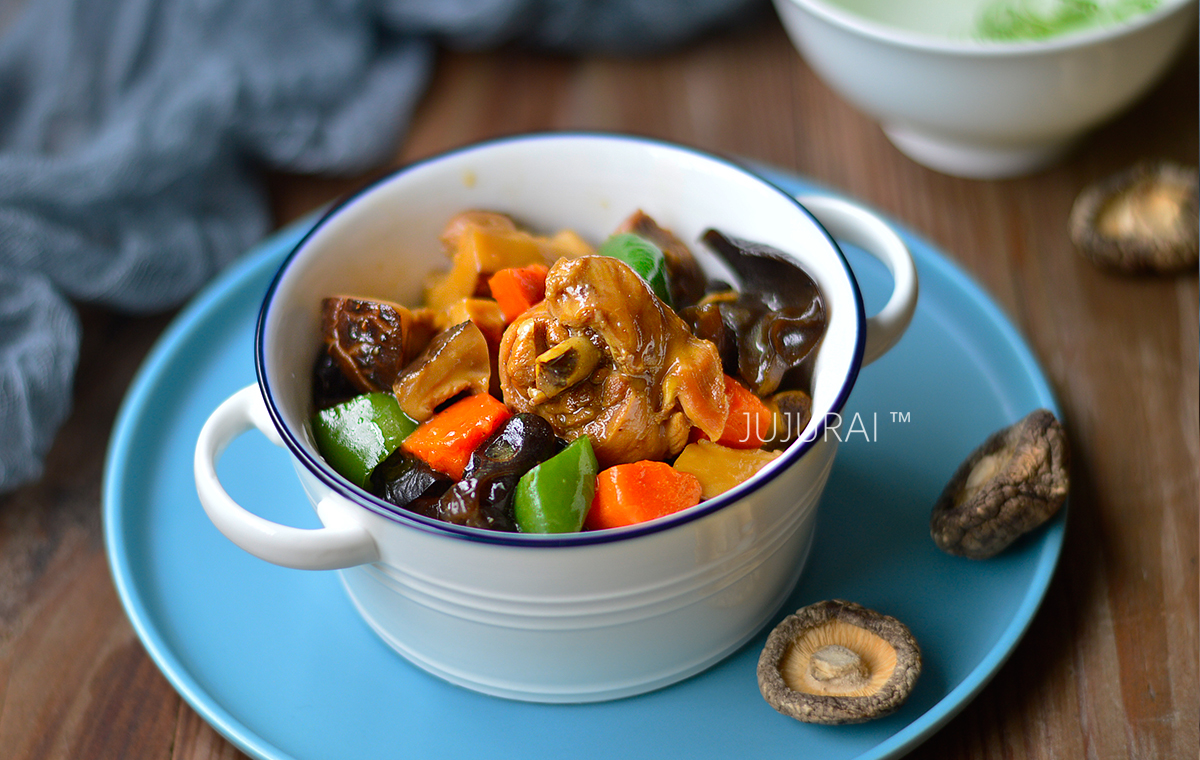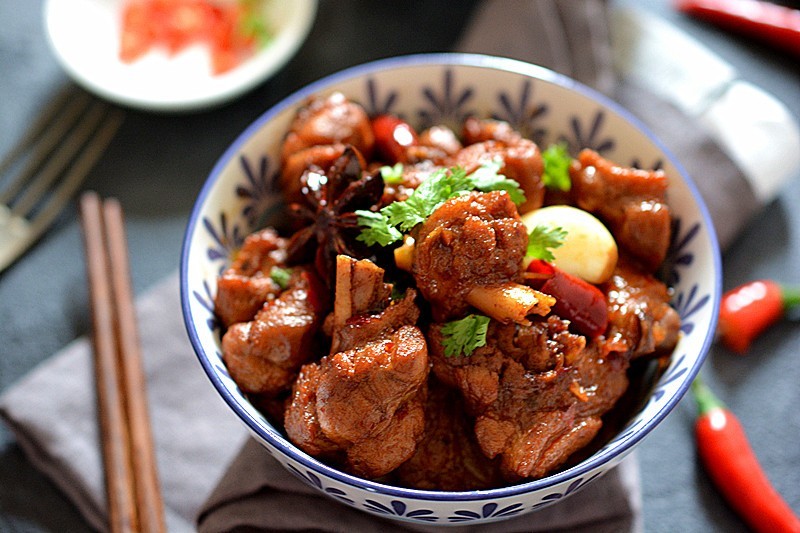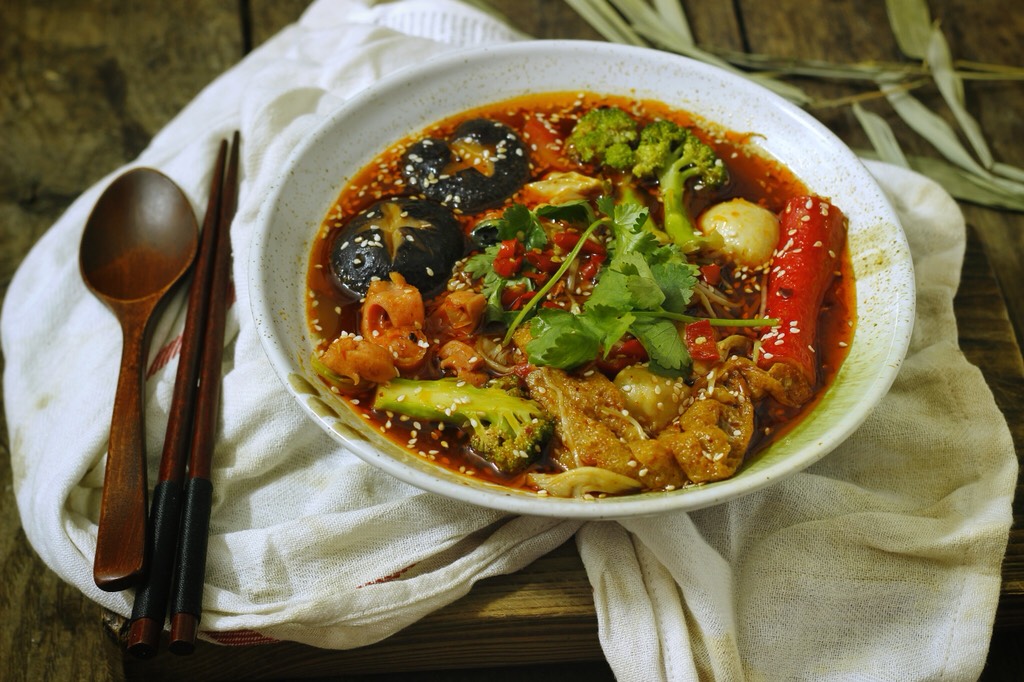Thai Coconut Milk Sago Cake - Updated Pandan Box Production Picture
Ingredients
- Thai sago 70g
- Fresh pandan leaves 20 pieces
- Granulated sugar 20g
- Corn kernels (cooked) Appropriate amount
- Horse hoof grains Appropriate amount
- Coconut milk 200ml
- Cornstarch 22g
- Salt A little
- Granulated sugar 50g
- Water 100ml+100ml
- Pandan leaves (slightly cut into pieces) 1 piece
Steps
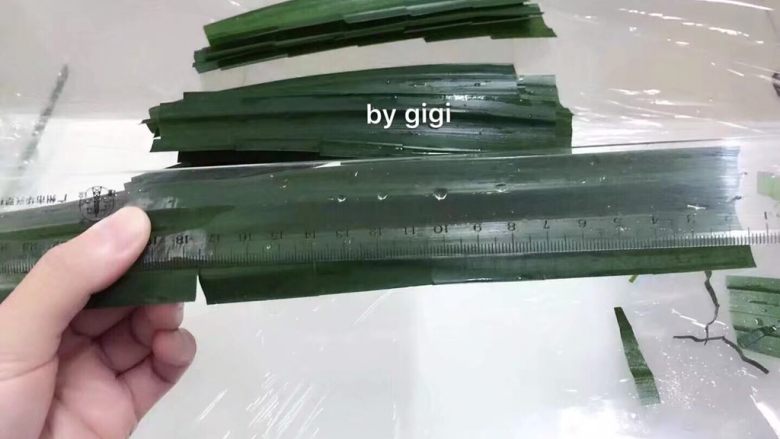
1. First make the pandan box: wash the pandan leaves and cut off the head and tail. Use a ruler to measure the middle part of the 3.5x3.5 box you made this time (the size can be adjusted by yourself) Cut a small opening at 3.5, 7, 10.5, 14 and 17.5 cm respectively. Cut to the middle without cutting. Finally, cut off at 17.5 cm into 5 equal parts (the more precise the measurement and cutting, the squarer the shape of the finished product will be and the better it will look)
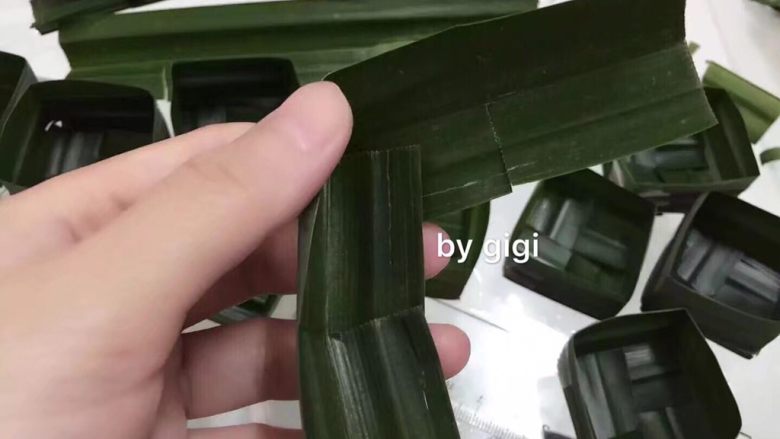
2. As shown in the picture, start from the middle and stack each piece from the top

3. As shown in the picture
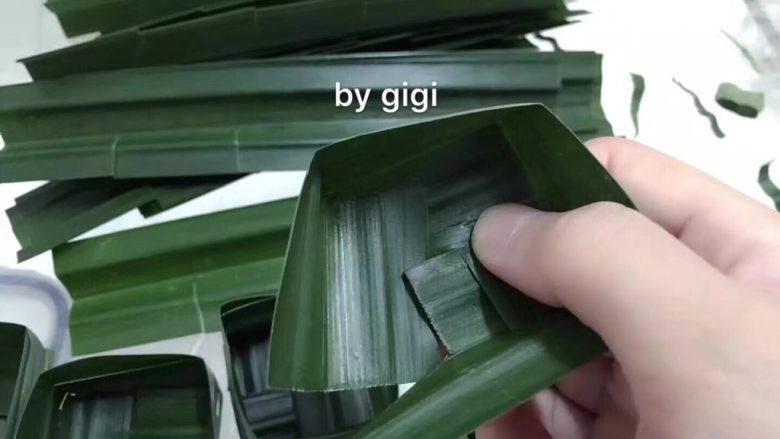
4. When stacking the 4th piece, pay attention: stack it up and down crosswise as shown in the picture (if there is no crosswise stacking here, the bottom of the box will be warped and uneven)
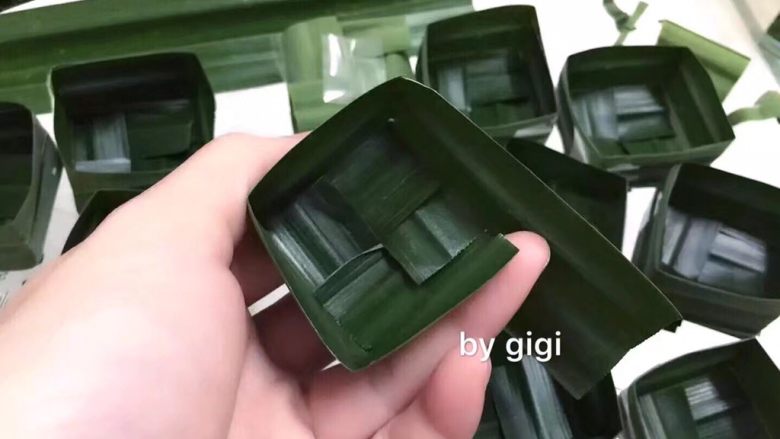
5. As shown in the picture, the bottom must be crossed and stacked

6. At the end, you must pay attention: the same cross-folding must be done up and down
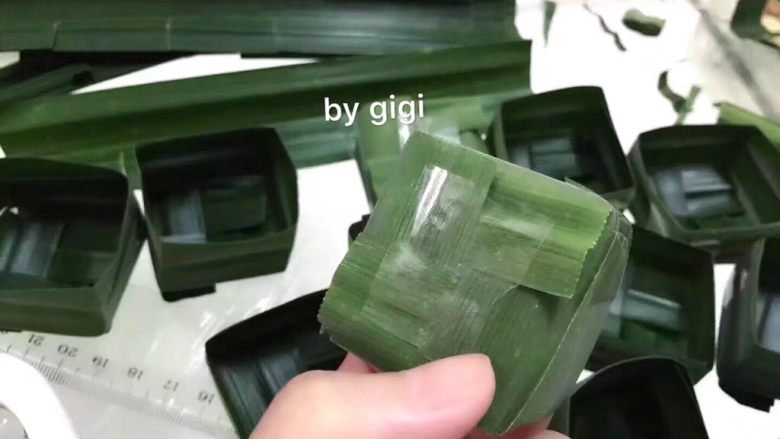
7. Finally, affix transparent tape to the bottom and side ends respectively or fix it with toothpicks. However, my final experimental result is that toothpicks do not look as good as tape because the toothpicks are too hard and the box is easily deformed< /p>
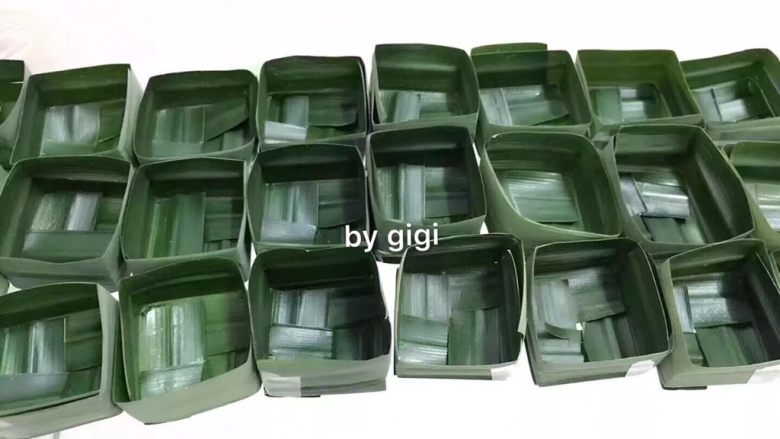
8. Now the pandan box is ready. Finally, it doesn’t matter if there are small holes in the box, because the cooked sago filling and coconut milk filling are thicker and will not leak out

9. Put an appropriate amount of water in the pot and bring to a boil. Add sago and cook over low heat for 15 minutes (stir occasionally during the process), turn off the heat, cover and simmer for 20 minutes

10. After the sago is completely transparent, pour it onto a sieve, rinse with cold water and drain
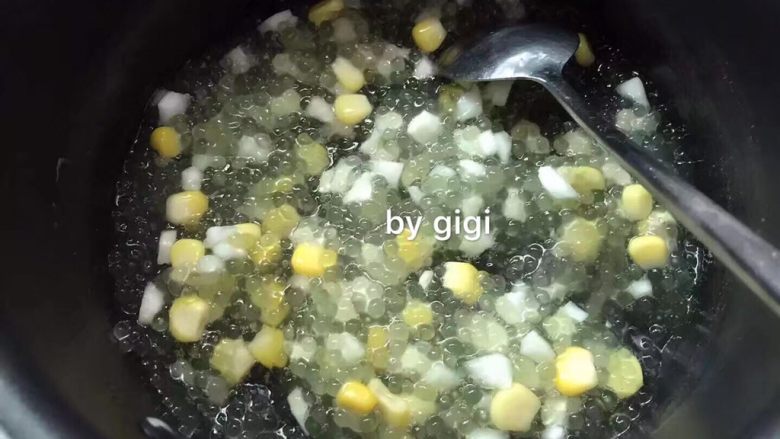
11. Pour 20g of sugar, corn kernels, and water chestnut kernels into the pot, reheat and stir until the sugar dissolves, then turn off the heat

12. Put the sago on the Banlan leaves while it is hot (full 7 points)

13. Add cornstarch to 100ml of water and mix thoroughly until there are no particles. Add 50g of sugar, coconut milk and salt to another 100ml of water. Pour into the pot. Add cut pandan leaves and heat over low heat until just boiling. Slowly pour in the mixed cornstarch water and cook until it boils and becomes thick. Turn off the heat and leave it for a few minutes. Remove the pandan leaves.

14. Pour it over the sago while it is hot. You can add 1 corn as a decoration at the end. Let it cool and refrigerate it until it solidifies

15. You can also put the rest in a small bowl

16. Finally add coconutCoconut milk has the best taste
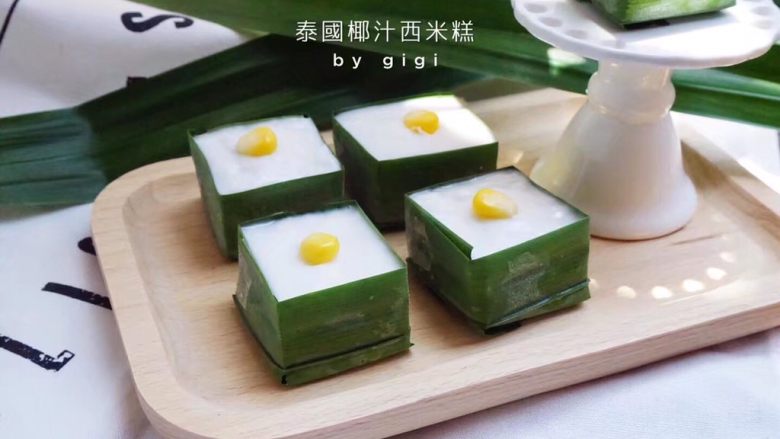
17. Complete
Tips
- Coconut milk is not commercially available coconut water for drinking directly
- It is recommended to use coconut milk imported from Singapore, Malaysia and Thailand. The taste of domestically produced coconut milk will be very different!
- Pandan leaves are difficult to buy in China. You can buy them at a certain treasure store for a few dollars
- Or don’t use pandan leaves and just use a small bowl
- Choose the middle position of the pandan leaves for stacking because the head is relatively hard
- Cut off the remaining leaves and save them for other desserts, such as squeezing the juice to make pandan cakes, Thai mango sticky rice, etc.! Fresh pandan leaves can be stored in the fresh-keeping layer for 2 weeks
- The corn must be steamed in advance
- Water chestnuts are water chestnuts and can be replaced with taro
- The green sago I bought is the same as the white one





